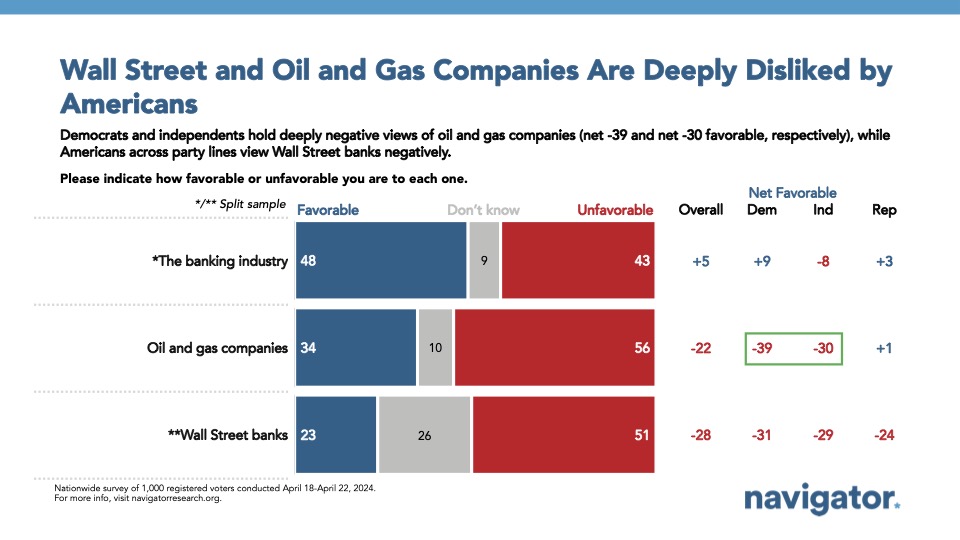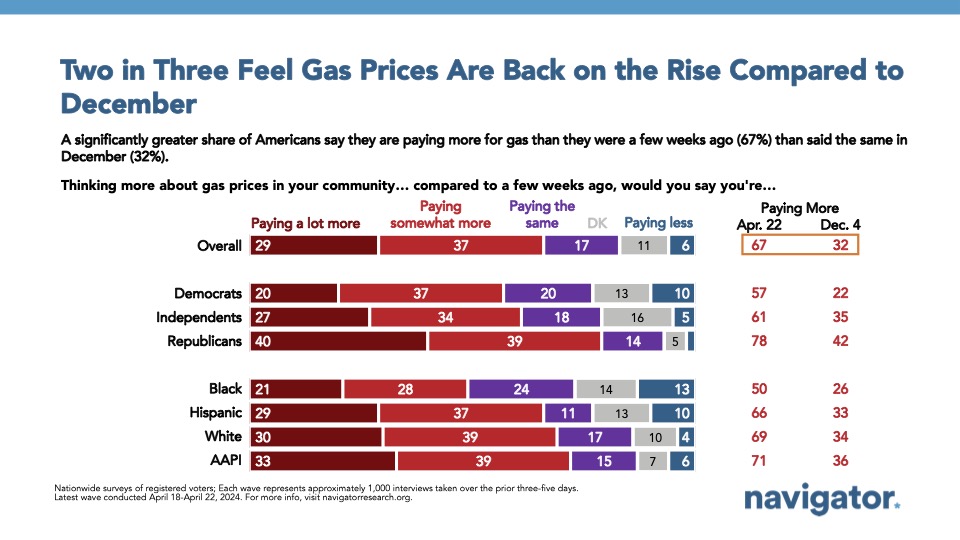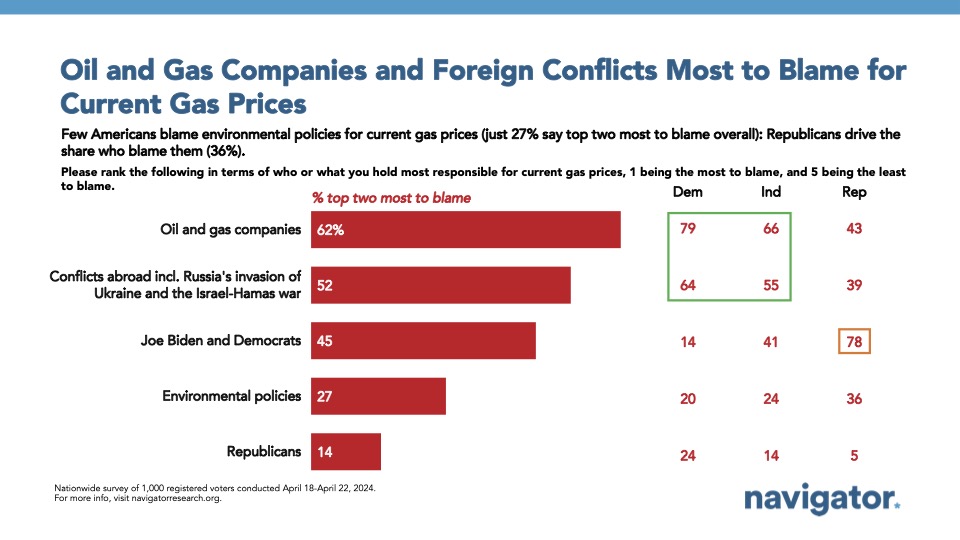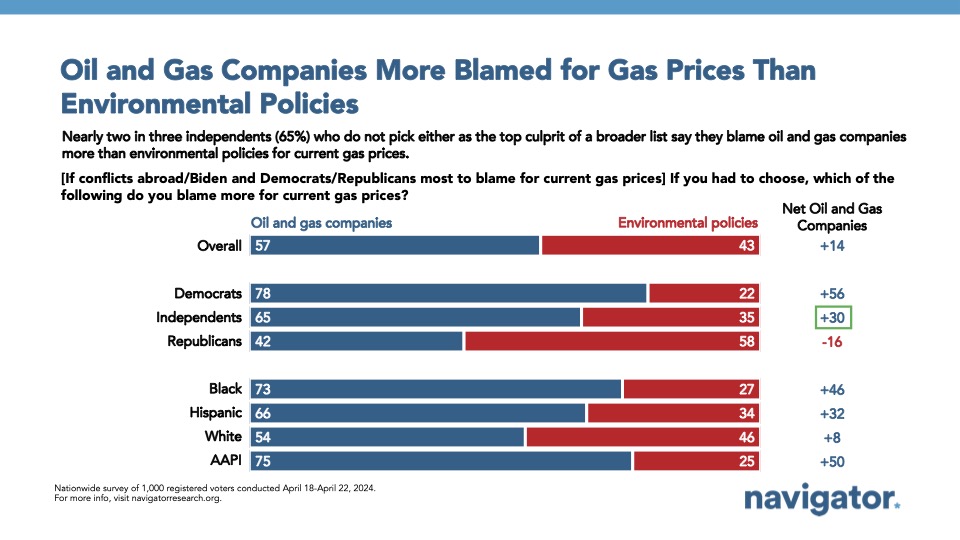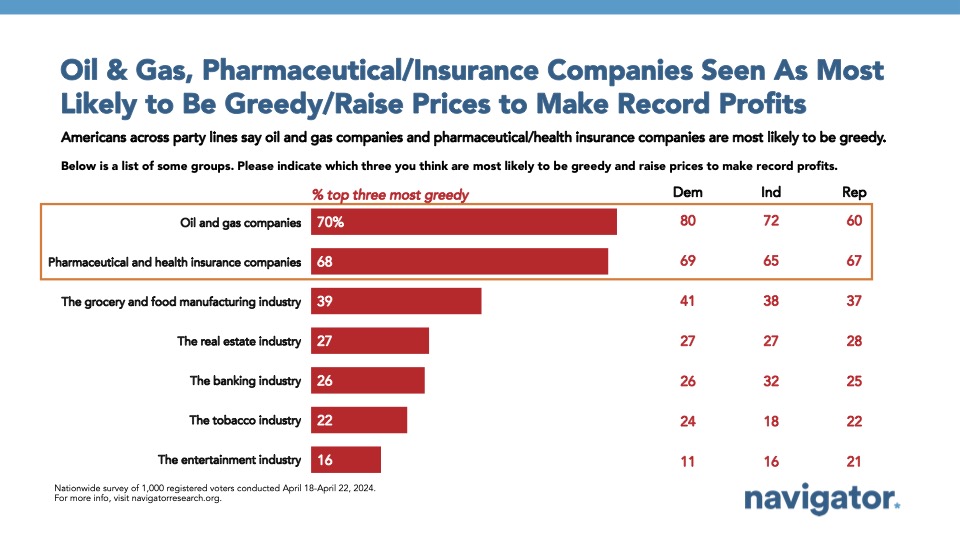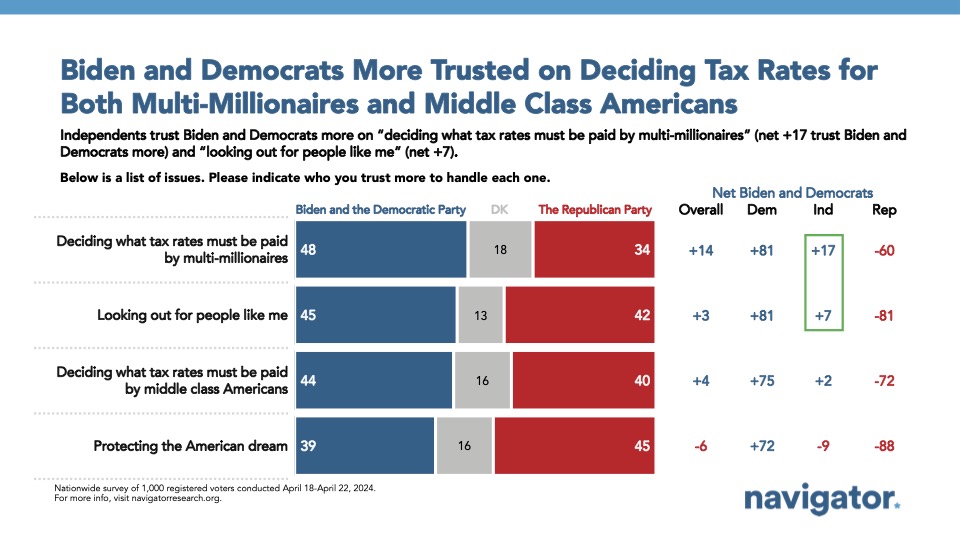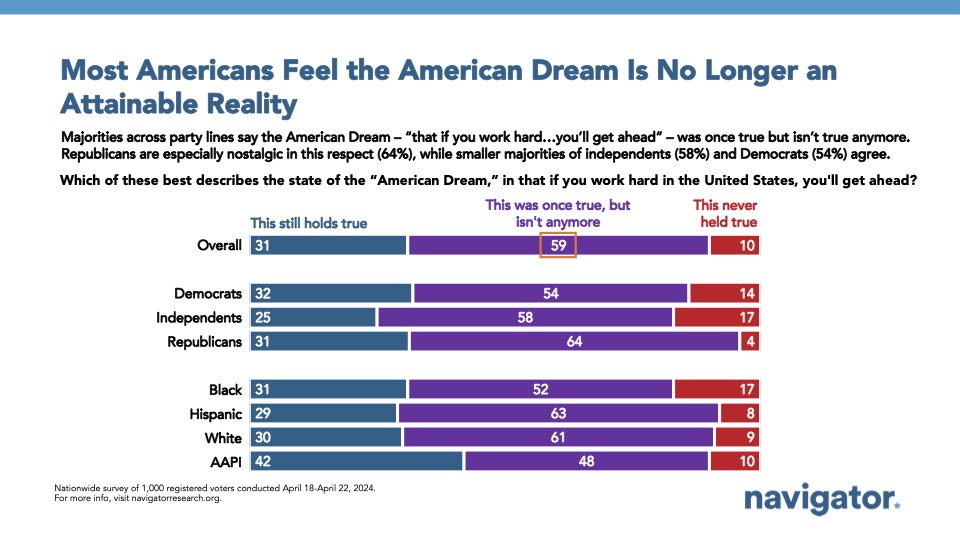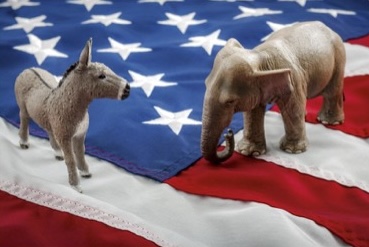Poll: Responsibility on Taxes and Gas Prices
This Navigator Research report contains polling data on Americans’ latest perceptions of the economy, including which industries are seen as most prone to corporate greed and who Americans trust most to decide what tax rates must be paid by both multi-millionaires and by the middle class.
Majorities of Americans view oil and gas companies and Wall Street banks unfavorably.
By a 28-point margin, Americans view Wall Street banks unfavorably (23 percent favorable – 51 percent unfavorable), with net negative favorability ratings across partisanship including among Democrats (net -31; 21 percent favorable – 52 percent unfavorable), independents (net -29; 16 percent favorable – 45 percent unfavorable), and Republicans (net -24; 27 percent favorable – 51 percent unfavorable). Oil and gas companies also have net negative favorability ratings (net -22; 34 percent favorable – 56 percent unfavorable) and are even more net negative than Wall Street Banks among both Democrats (net -39; 26 percent favorable – 65 percent unfavorable) and independents (net -30; 26 percent favorable – 56 percent unfavorable), while Republicans are evenly split (net +1; 46 percent favorable – 45 percent unfavorable).
Two in three Americans say gas prices are on the rise, up significantly now compared with late last year.
67 percent say they are paying more for gas compared to a few weeks ago, including 29 percent who say they are paying “a lot” more. The share who say they are paying more has increased by 35 points since December, when only 32 percent of Americans say they were paying more for gas compared to a few weeks ago.
A majority believe oil and gas companies are to blame for rising prices.
When asked who or what is most responsible for rising gas prices, three in five say oil and gas companies are to blame (62 percent), followed by conflicts abroad for current gas prices (52 percent) and Biden and Democrats (45 percent). In a forced choice among those who blamed Biden/Democrats, Republicans, or conflicts abroad asking whether oil and gas companies or environmental policies are more responsible for rising gas prices, oil and gas companies are blamed more than environmental policies by 14 points (57 percent oil and gas companies – 43 percent environmental policies).
- Seven in ten Americans with jobs in the service industry list oil and gas companies as most to blame for current gas prices (71 percent), as do 63 percent of Americans working white collar jobs and 58 percent of Americans working blue collar jobs.
Oil and gas companies and pharmaceutical companies are seen as the most likely industries to be greedy and raise prices to make record profits.
Seven in ten Americans think oil and gas companies (70 percent) are the most likely to raise prices to make record profits, followed closely by pharmaceutical and health insurance companies (68 percent). Among those who are unfavorable to both Biden and Trump, pharmaceutical and health insurance companies are most likely to be seen as engaging in corporate greed (77 percent), followed closely by oil and gas companies (70 percent).
- Majorities across party lines believe oil and gas companies (80 percent of Democrats, 72 percent of independents, and 60 percent of Republicans) and pharmaceutical and health insurance companies (69 percent of Democrats, 65 percent of independents, and 67 percent of Republicans) are prone to corporate greed.
President Biden and Democrats in Congress are seen as more trusted to decide what tax rates must be paid by both multi-millionaires and by middle class Americans.
By a 14-point margin, Americans trust Biden and Democrats more than Republicans in Congress when it comes to deciding what tax rate must be paid by the wealthy (48 percent Biden and Democrats – 34 percent Republicans). When it comes to deciding what tax rate must be paid by middle class Americans, Biden and Democrats hold a narrower 4-point party trust advantage over Republicans (44 percent Biden and Democrats – 40 percent Republicans).
- Americans also trust Biden and Democrats more when it comes to making prescription drugs more affordable (51 percent Biden and Democrats – 32 percent Republicans); however, Republicans hold a 7-point advantage when it comes to handling jobs and the economy (41 percent Biden and Democrats – 48 percent Republicans) and a 6-point advantage on “protecting the American Dream” (39 percent Biden and Democrats – 45 percent Republicans).
- Only one in three Americans still believe in the “American Dream” as defined as “if you work hard in the United States, you’ll get ahead” (31 percent), while about three in five say this once held true but does not anymore (59 percent). Only one in ten say “the American Dream” never held true (10 percent).
About The Study
Global Strategy Group conducted a public opinion survey among a sample of 1,000 registered voters from April 18-April 22, 2024. 100 additional interviews were conducted among Hispanic voters. 75 additional interviews were conducted among Asian American and Pacific Islander voters. 100 additional interviews were conducted among African American voters. 100 additional interviews were conducted among independent voters. The survey was conducted online, recruiting respondents from an opt-in online panel vendor. Respondents were verified against a voter file and special care was taken to ensure the demographic composition of our sample matched that of the national registered voter population across a variety of demographic variables.

